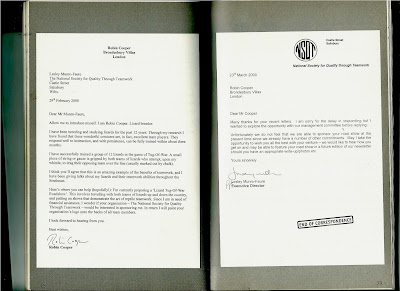Ducking the question.
Have you stopped beating your wife?
More to the point, have you stopped beating yours?
Answering a question with another
question is a trick which politicians often use.
Mr Johnson lied about dying in a ditch, did he not?
Yes, but what about Jeremy Corbyn then?
Have you tidied your room up yet?
Mum, what's for lunch?
Teacher: Where is your coursework?
Pupil: I really like that brooch! Where did you get it?
Parliament was discussing a British
surrender to Germany in 1941 after the fall of France:
You ask, what is our policy? I will say it is to wage war, by sea, land, and air, with all our might and all the strength that God can give us; to wage war against a monstrous tyranny...
You ask, what is our aim? I can answer in one word: Victory.
Winston Churchill said these words in
the House and the die was cast.
But he still dodged the question,
although he did mention that “We shall never surrender.”.
A Level Students only:
It is unhelpful to answer a question
with a further question – and that is what the Greeks called it:
anthypophora (anti-hypo-phora = against + underhand)
Next time someone does it to you, sit them down and quietly explain that you know all about anthypophoria and that it just has not effect on you! This works specially well in tutorials and even better at parties.













